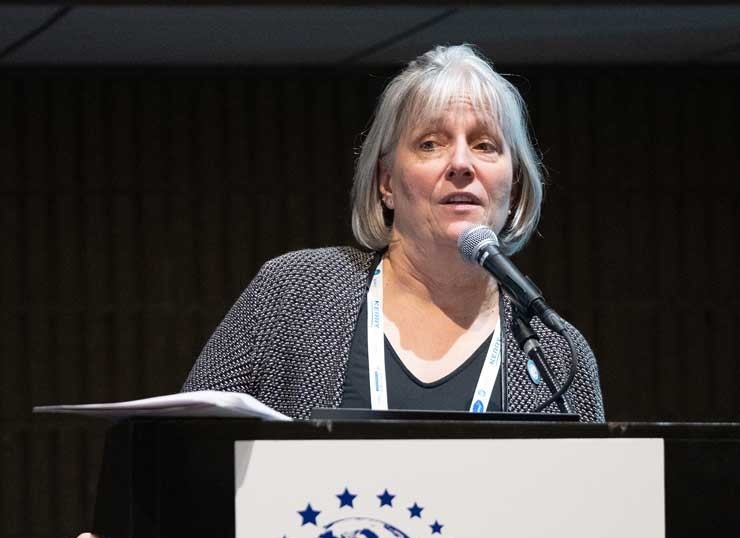Biosecurity: Preparedness must be perpetual
Education program reinforces need for biosecurity plans in feed facilities, with spread of HPAI and African swine fever globally.
January 31, 2023

The American Feed Industry Association hosted a half-day educational program last week in conjunction with the International Production and Processing Expo. The program offered more than 150 registered attendees a chance to hear from scientific experts on the latest spread of highly pathogenic avian influenza and African swine fever globally, as well as ways the feed and poultry industries can plug gaps now in their biosecurity programs.
"It's bad guys. I just don't know how else I can say that," said Louise Dufour-Zavala, executive director of the Georgia Poultry Laboratory Network, in regard to the current spread of HPAI in the United States.
Dufour-Zavala explained that the 2015 HPAI outbreak decreased during the summer months, but the 2022 virus continued to spread from farm-to-farm and is now mostly being spread from wildlife, including rodents, which may carry the virus on their feet. Although a HPAI vaccine is available, it is complicated for poultry farmers to use them, given high costs and risks to U.S. trade pacts. The best thing the agricultural community can do is reduce the number of HPAI cases in flocks and wildlife, so the risk of its spread diminishes. This can be done on farms and at feed mills by creating lines of separation for foot traffic, controlling visitors and animals, and properly disposing of infected, depopulated birds.
Pedro Urriola, research assistant professor for the University of Minnesota, discussed the latest research on virus survivability in feed and said that research should be ongoing. Cassandra Jones, professor at Kansas State University, echoed that one of the challenges with the ASF virus is that it is extraordinarily stable and able to prevent it from degradation in typical conditions. "[ASF] is like the armored tank of all viruses we have to work with," she said.
ASF is currently not in the United States, but entered the Western hemisphere in 2021, and the feed and swine industries have been working to improve their biosecurity programs to guard against its entrance. The U.S. federal government, through the USDA and Food and Drug Administration, are also working to develop plans for how they would respond in the event of an outbreak. Jones described that there are still many questions that need to be answered. For example, if feed is found to be contaminated with the ASF virus, then how should it be properly disposed of, etc.
The AFIA's Nutrition Committee shaped the agenda for the "Biosecurity: Preparedness Must Be Perpetual" program. Next year's IPPE will take place Jan. 30-Feb. 1, 2024.
You May Also Like



